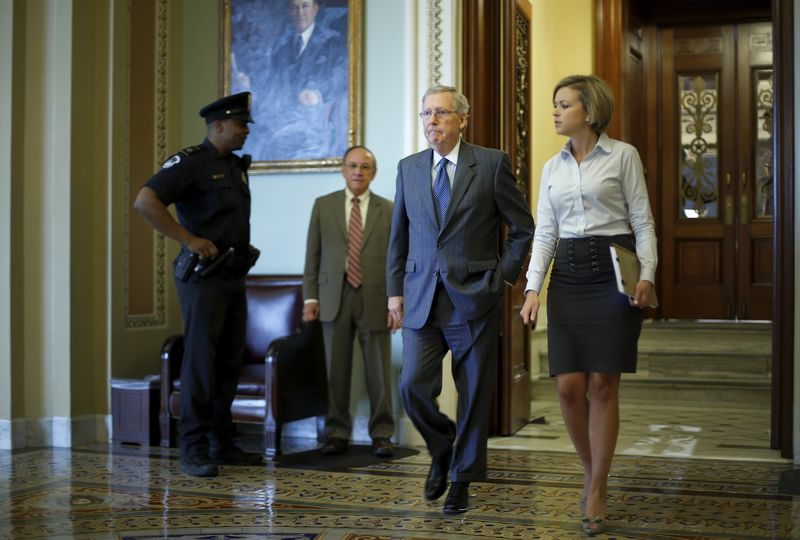By Richard Cowan and Jason Lange
WASHINGTON (Reuters) - President Barack Obama scored a major victory on Friday when the U.S. Senate voted to give him "fast-track" powers that would help wrap up negotiations on a 12-nation Pacific Rim trade deal central to projecting American influence in Asia.
Attention now turns to the House of Representatives, where opposition is deeper to granting the president power to negotiate trade deals that can be approved or rejected by Congress but not amended.
Obama needs trade promotion authority (TPA) to complete the Trans-Pacific Partnership (TPP) trade agreement this year, an economic alliance that would encompass 40 percent of the world's economies in countries ranging from Japan to Chile.
"Today's bipartisan Senate vote is an important step toward ensuring the United States can negotiate and enforce strong, high-standards trade agreements," Obama said in a statement issued immediately after the Senate passage.
If eventually enacted into law, the up to six-year TPA would extend to any trade deals negotiated by Obama's successor, who would take office in January 2017.
The Senate voted 62-37 for TPA, or fast-track as it is known in Washington, following weeks of bitter debate and White House lobbying.
Senate Finance Committee Chairman Orrin Hatch, the Republican who shepherded the legislation through the Senate, said: "This is an historic piece of legislation...likely the most important bill we'll pass this year."
Before the final vote, the Senate defeated, 51-48, an amendment that the White House considered toxic, which would have imposed penalties on countries found to be manipulating their currencies in order to sell more goods abroad.
Opponents argued that the amendment would sink the TPP and would violate international trade rules, while also making it harder for central bankers to manage their economies.
Instead, the Senate approved milder currency manipulation language that lacks enforcement tools. This version was supported by the White House.
Democratic Senator Sherrod Brown, a leading opponent of fast-track, said the lobbying against the tough currency manipulation amendment was overwhelming.
"The president has been lobbying against it and Wall Street's been lobbying against it and...the same people that pushed this trade agreement are lobbying against it. It's a lot of power," Brown said.
Given the close vote on the amendment in the Senate, some supporters of tough enforcement against currency manipulation vowed to continue to fight for it.
Ford Motor (NYSE:F) Co Vice President Ziad Ojakli said in a statement that the company will "work with lawmakers to address this critical issue as TPA moves through the legislative process."
Ford is among U.S. automakers that fear increased competition from Japan.
Earlier on Friday, Japanese Economy Minister Akira Amari said ministerial meetings on TPP are unlikely until Congress approves fast-track authority for Obama.
The deep divisions within the U.S. Congress were on display on Friday.
"We all know that by passing this legislation, we can show we're serious about advancing new opportunities for bigger American paychecks, better American jobs, and a stronger American economy," said Senate Majority Leader Mitch McConnell, a Republican.
Senate Democratic leader Harry Reid dismissed the emerging TPP as just another trade deal, like past ones, that does little more than help rich, multinational corporations while jeopardizing American jobs.
"This trade bill is another example of how we have ignored in this Congress working men and women in this country," Reid said.
As the action moves to the House, when it returns on June 1 from a 10-day Memorial Day holiday recess, labor unions and environmentalists opposed to free-trade deals are expected to ratchet up pressure on Democrats to vote against the legislation.

Meanwhile, House Speaker John Boehner, who backs fast track, will also have to try to minimize opposition from fellow Republicans, some of whom do not want to give Obama the additional powers.